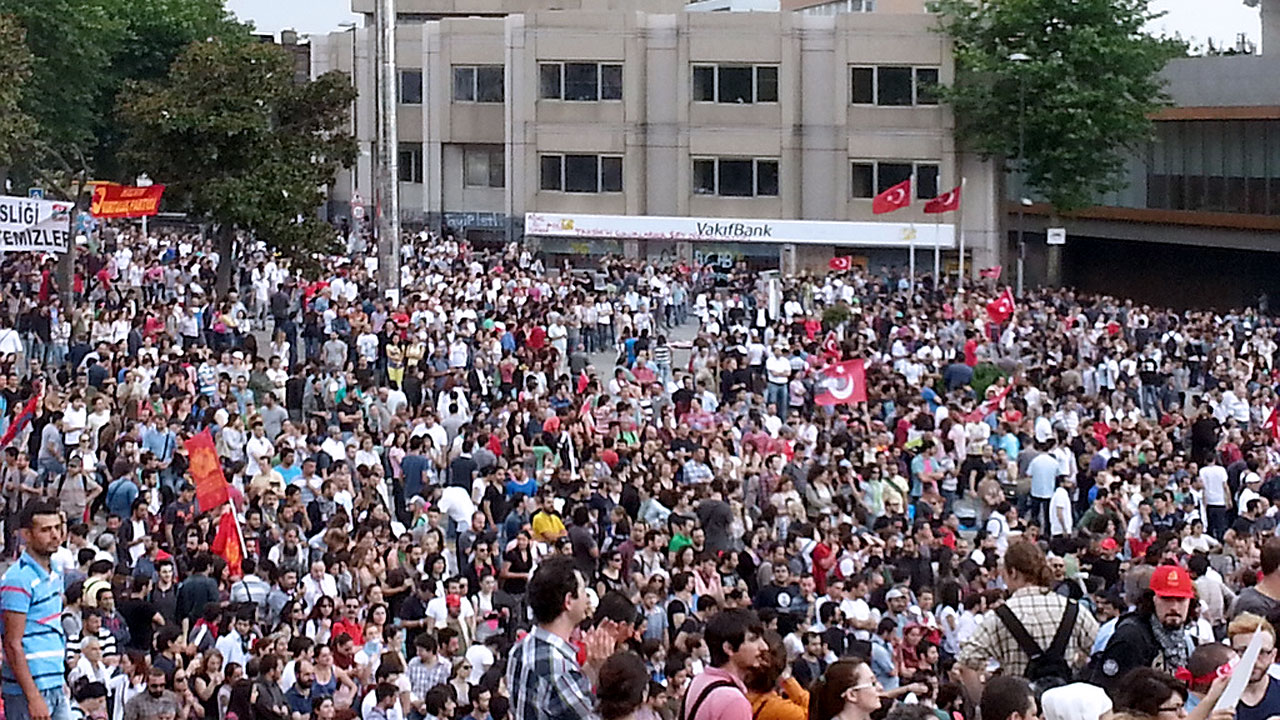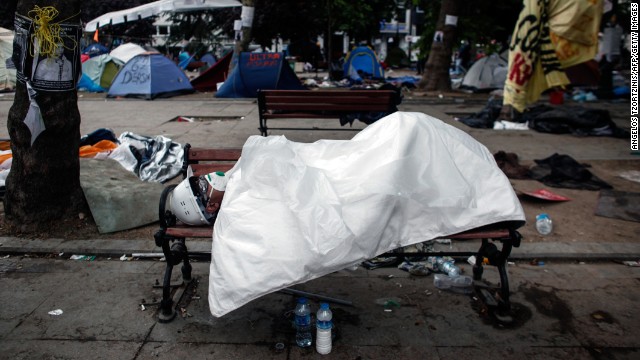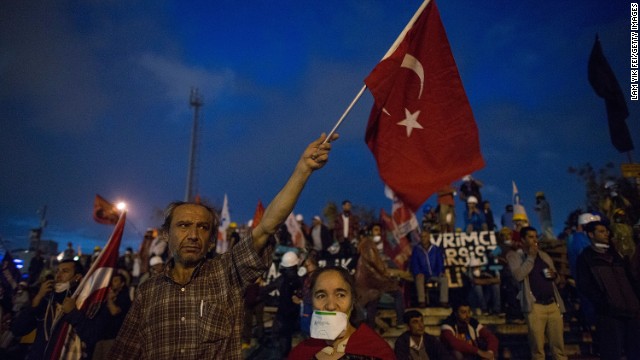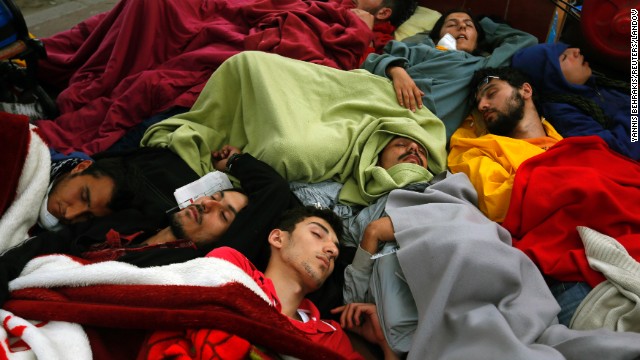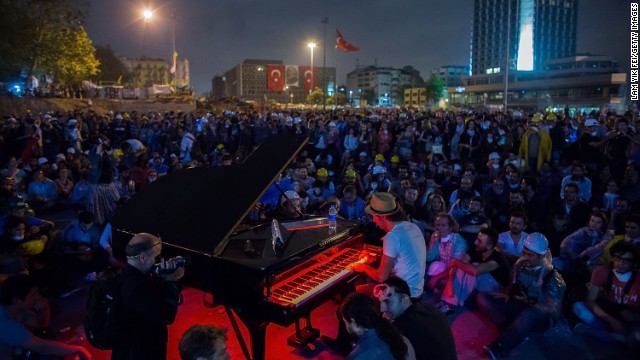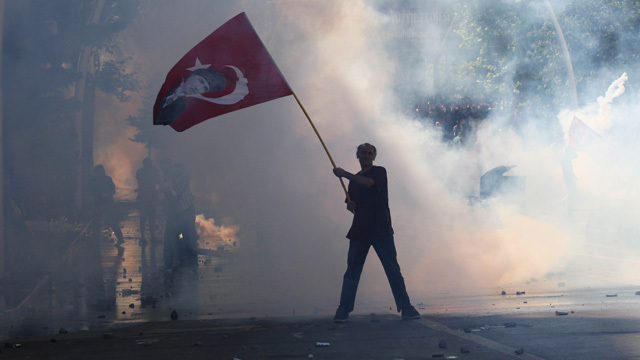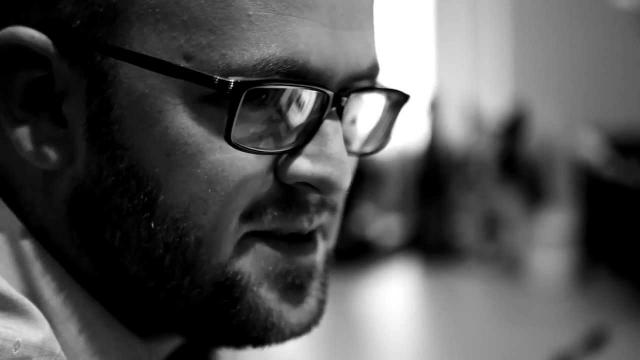
As the Occupy Gezi movement picks up steam In Turkey, mothers of protesters have formed a human chain around the protests blocking police from attacking their sons and daughters. Justin Wedes, one of the earliest organizers and participants of Occupy Wall Street at Zuccotti Park, was in Istanbul last week taking part in the protests. Justin is an administrator of the @OccupyWallStNYC twitter account and was one of the first activists arrested by the NYPD at the Liberty Square occupation in 2011. I spoke with him about his experience in Istanbul.
CARL GIBSON: So what was the scene when you got off the plane and left the airport? Describe what you saw when you made it to the square.
JUSTIN WEDES: When I got to downtown Istanbul, the police were retreating from Gezi Park. They had been attacking the protesters for 2 or 3 days with tear gas and water cannons, but the protesters held fast. As police were leaving, the park and the square were being flooded with more people. The park itself was very festive and joyous after the police left. It was hard to tell who was partying and who was protesting. It was a beautiful, autonomous zone.
CG: I’ve heard some people say that this is more similar to Tahrir Square than it is to Zuccotti Park. Having been one of the original members of Occupy Wall Street from day one, what’s your response to that?
JW: I think it has elements of both Tahrir Square and Zuccotti Park. There was the beautiful solidarity and unity I felt in Zuccotti Park, but also the righteous anger and intensity fueled by police violence that was evident in Tahrir Square. You had workshops where they were teaching young people how to properly wear a gas mask. There were barricades being stacked higher and higher and farther away from the square to keep police out. We were using the material from the development project in Gezi Park that people were originally protesting.
There was the camp-like feeling of Occupy, but the facilities there were very complex and advanced. The medical tent was staffed with actual doctors and nurses with a vast array of medical supplies. There were street medics everywhere tending to people’s injuries. There was even one police officer who was hit by a stray piece of wood—I want to stress that the piece of wood was blown off of tree by strong wind and not thrown by a protester—and street medics even tended to his injuries. He resisted being helped by the protesters at first, but he eventually accepted their help and they even volunteered to drive him to the hospital. There was so much amazing, spontaneous self-care.
CG: I saw some really disturbing pictures of the protest, like the dog being treated for tear gas exposure. There were photos of journalists filing their stories while wearing gas masks. And even OWS photographer Jenna Pope was talking about how the moisture in the air was setting off the tear gas residue on her skin. It sounded like a warzone down there. Was that your experience?
JW: The only time it was like a warzone were when the police were attacking us. The rest of the time was very peaceful and joyous. It was only yesterday when police returned to the square to attack protesters that it got violent and chaotic. The rest of the time was spent talking, celebrating, playing music, marching and banging pots and pans, and talking about what would come next.
CG: So what will come next? Obviously the original goal of the protest was to block the development in the park, and that’s obviously succeeded. But it seems like this is escalating into something major. What’s being demanded? The resignation of Prime Minister Ergodan?
JW: The protests aren’t slowing down anytime soon. Regardless of whether or not the police shut down the park in the future, the people are activated. We obviously want the prime minister to resign, but the people are also speaking out for a more fair, just society. They want democracy. There are other things that people want changed in Turkey, like overturning alcohol prohibition, and ending the prime minister’s mandatory 3-child rule he’s put in place for growing the economy or whatever. The people want to have their own say in their lifestyles and want a more just government truly representative of the people. They want an end to autocratic rule. Like a lot of people said here, we have elections, but we don’t have democracy.
CG: So how many people have activated, would you say? I remember hearing about the public sector unions calling a two-day strike in solidarity with the protests. What was the peak number of people you saw at the park taking part?
JW: It dwarfed Occupy Wall Street by far in terms of the sheer amount of people at the park. Even though Gezi Park itself could only hold maybe 2,000 or 3,000, there were crowds of people stretching out into the square, camping out on hotel lawns, putting tents and sleeping bags anywhere they could. At night, tens of thousands of people would come out and march with us around the square. People in nearby buildings would flash their lights on and off in support. There were at least 50,000 or 60,000 people at its peak. But also keep in mind that there were cities all over Turkey where people were spilling out into the streets. There are millions of people participating all over the country.
CG: So from your experience, is the fight in Turkey part of the larger struggle against the corporate takeover of government that galvanized Occupy Wall Street?
JW: While every country is different and has different struggles, there are some underlying principles that unite everyone. We’re all fighting governments that have been captured by corporate interests. All over the world people are demanding a more democratic government that’s accountable to people, not corporations. In all of these countries, there are entrenched moneyed interests working hard to make sure the public doesn’t have a say in government. But we all know that there has to be a rising up of this new generation of people demanding freedom of speech and expression, a true democracy, and justice for everyone regardless of their class or ethnicity or gender.
3 WAYS TO SHOW YOUR SUPPORT
- Log in to post comments

